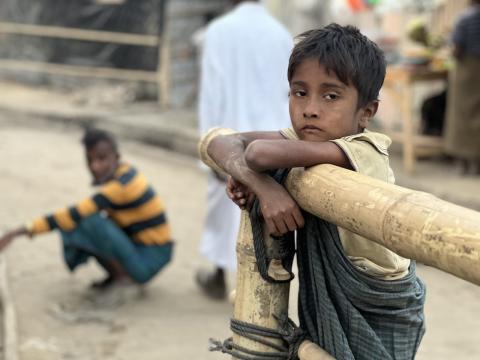On my recent visit to Myanmar, I attended the commemoration ceremony of U Ko Ni, the former lawyer and legal advisor to the National League for Democracy. He was among the most vocal of advocates for constitutional change in Myanmar.
While some aspects of political and social life in Myanmar have opened up since 2012, this limited process of democratisation has not necessarily come with a basic concern for human life.
His death and the court case against some of his killers is a reminder of the death penalty paradox in Myanmar. Despite being a majority Buddhist country, Myanmar’s legal system endorses the death penalty for certain offences.
Ko Ni’s assassination two years ago, on 29 January 2017, was a horrendous shock and has had a chilling effect on efforts for constitutional reform.
His death had a chilling effect on pro-democracy actors and on the National League for Democracy who felt that one of their own had been targeted. His death was taken as another warning about the position of the Office of the State Counsellor held by Aung San Suu Kyi, an innovation he helped to create.
His death had a chilling effect on lawyers and broader civil society movements who support efforts at constitutional change.
His death also had a chilling effect on minorities, particularly Muslims. Ko Ni’s status as a Burmese Muslim and his willingness to criticise the failure of political parties to field Muslim candidates in the 2015 elections was widely known.
Since his death, four people were put on trial for his murder and also for the death of a taxi driver who ran after the gunman. The court case took two long years. During this time, the court hearings generated controversy after supporters for the defendants attended court and implicitly threatened the judges.
Finally, in February the court found the accused guilty. The court handed down the death penalty for two of the accused.
The death penalty has long been a feature of the legal landscape in Myanmar. The state has used the death penalty against political opponents, including democratic actors, members of ethnic armed groups or insurgencies, and students. For example, in 1948, a well-known independence figure and member of the Communist Party of Burma Major Chin Kaung was sentenced to death. The president has the power to pardon the death sentence, which he later did.
In late 1974, following the student protests against the socialist regime, a key student leader Tin Maung Oo was sentenced to death. He was executed a few months later. In 1976, army captain Ohn Kyaw Myaint was sentenced to death for allegedly attempting to assassinate General Ne Win, the ruler at the time. Death sentences were also issued against members of ethnic armed organisations fighting against the government who were arrested by the military, such as in Karen State.
In recent years, there is evidence that the death penalty has been handed down against some Rohingya that were alleged perpetrators of violence in Rakhine State. These trials are often conducted without legal representation and with few safeguards for the accused. Some have died while in custody.
Critics of the death penalty are often told that Myanmar had not actually carried out the death penalty for many years.
It is certainly true that in 2014 President Thein Sein commuted all of the country’s death sentences to life imprisonment. However, since 2016, under the NLD government, the courts have already sentenced at least 66 people to death.
In addition to the state-sanctioned legal system, there is evidence that the death penalty has recently been issued or carried out in non-state trials. For example, some ethnic armed areas, such as parts of Karen State, have their own forms of criminal justice. There have also been reports of tribunals of the Kachin Independence Organisation in the Wa Region handing down the death penalty.
While some aspects of political and social life in Myanmar have opened up since 2012, this limited process of democratisation has not necessarily come with a basic concern for human life.
Some of the new laws passed by parliament, such as the Anti-Terrorism Law, includes the death penalty for certain offences. There have also been attempts to expand the range of offences that may attract the death penalty, such as for child rape, although proposals have so far failed.
The irony is that Myanmar is a majority-Buddhist country, and yet support for capital punishment remains strong. This is the paradox of the death penalty in Myanmar.
The perpetrators of Ko Ni’s death may have had a chilling effect on democratisation, but the death penalty is unable to undo the major political setback his assassination triggered.

